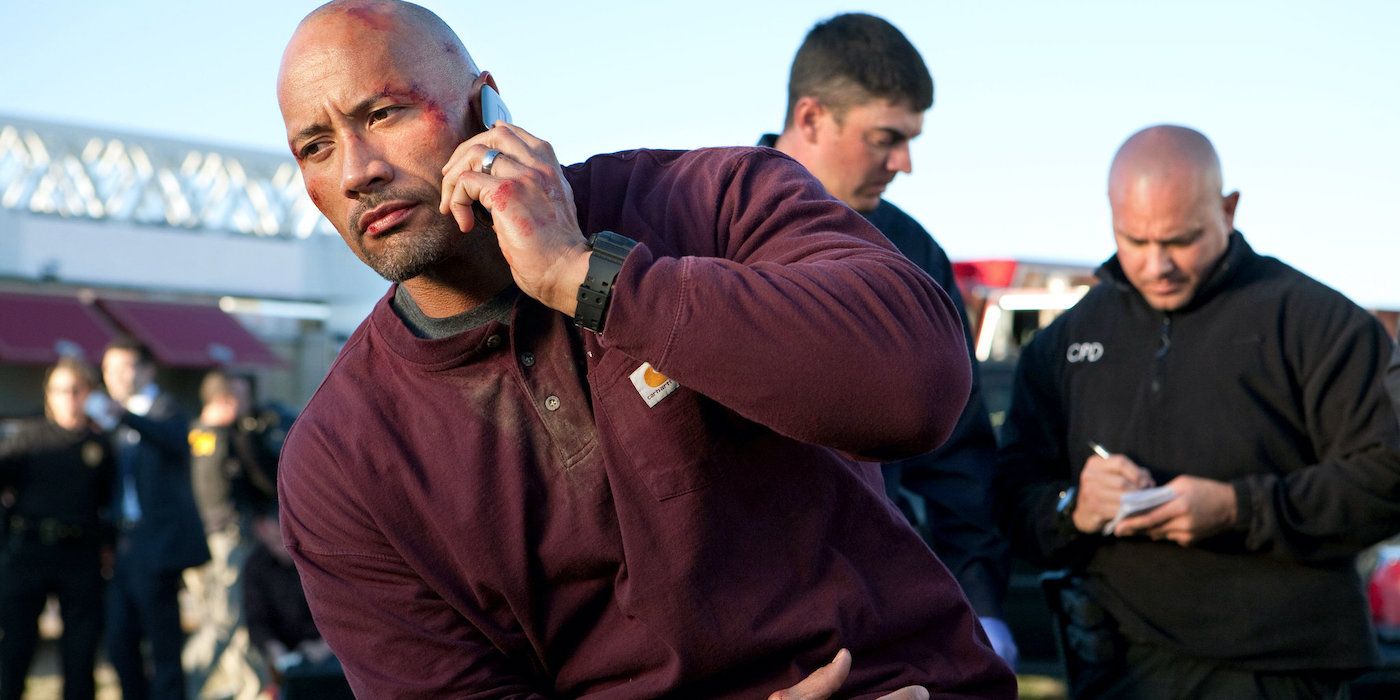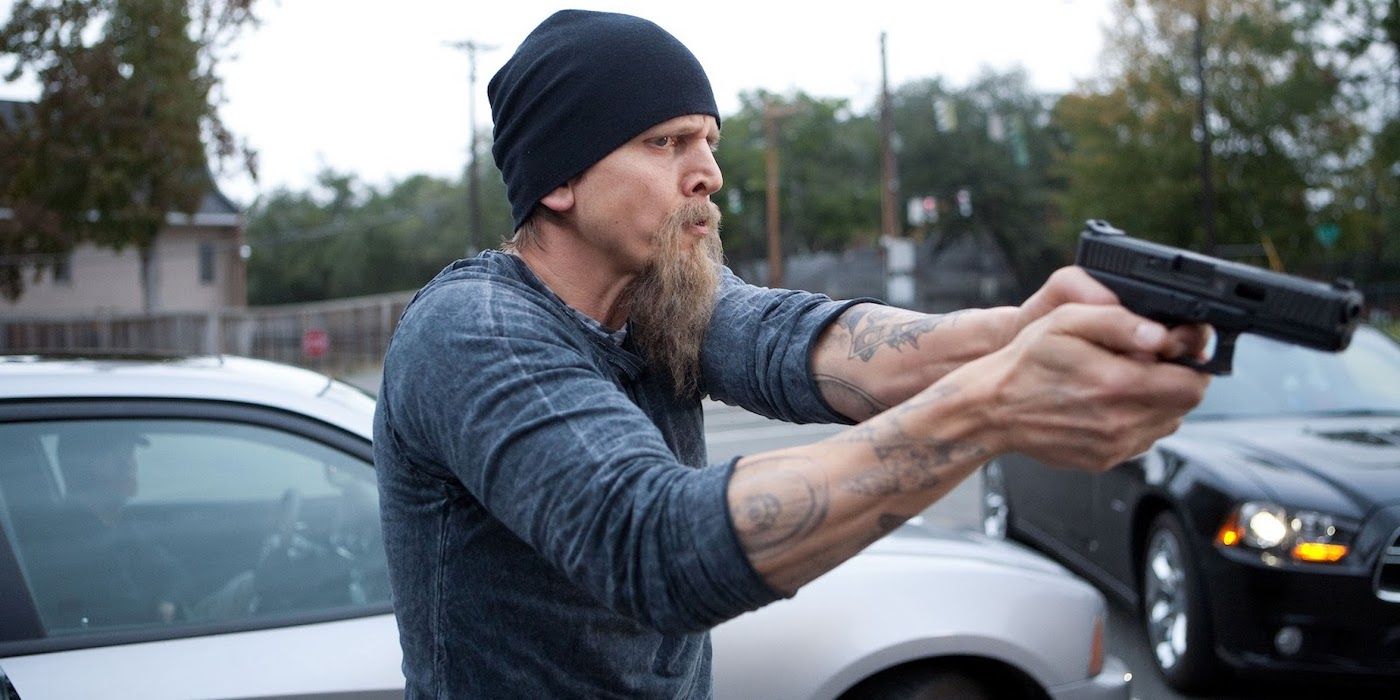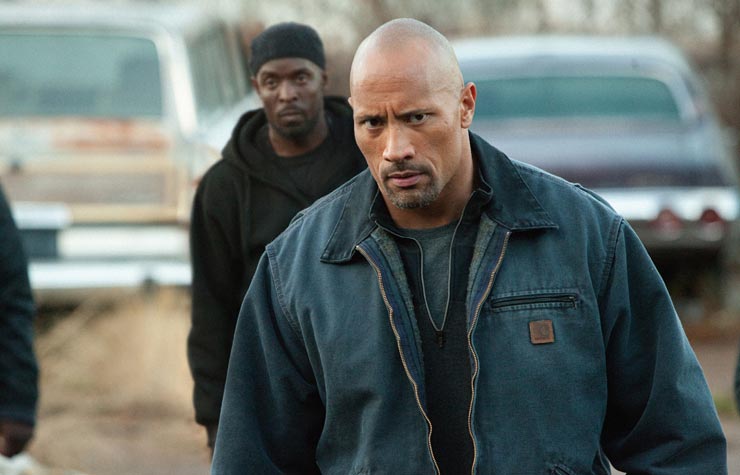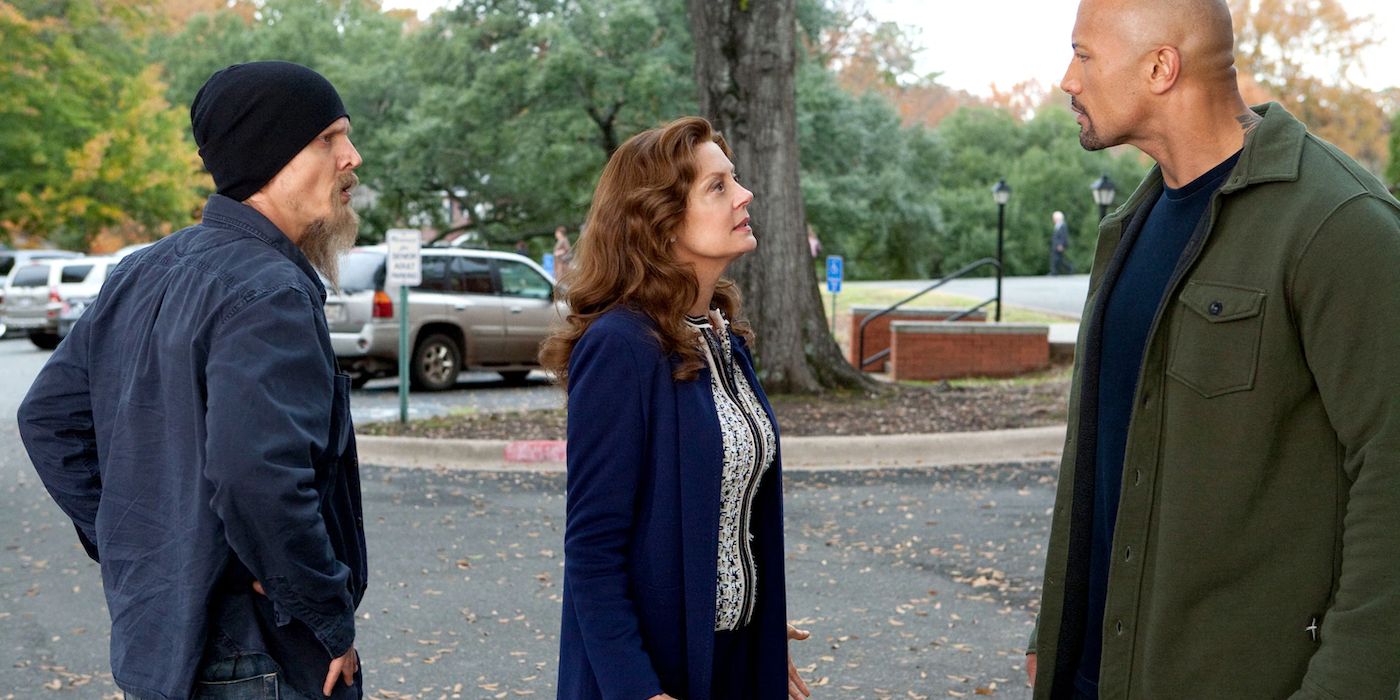This 2013 movie isn’t just a Dwayne Johnston star vehicle, it’s also radically different than modern Johnson offerings.
Are Dwayne Johnson’s modern-day movie choices a 2013 country song by Easton Corbin? Because they tend to function a bit like clockwork. Johnson’s never been somebody who embraced indie cinema (he was The Tooth Fairy, after all), but starting in 2014, he settled into a groove of doing one or two PG-13 tentpoles a year (with the R-rated Baywatch in 2017 being the lone exception to this rule). Each of these movies costs a ton of money to make, often has a heavy amount of family appeal, and typically doesn’t have Johnson stretching beyond his comfort zone as a performer. San Andreas, Black Adam, Red Notice, Skyscraper, they’re all done in this mold.

Just before Johnson decided he wanted to do G.I. Joe: Retaliations for the rest of his career, though, he headlined a smaller crime movie entitled Snitch. Turning ten years old this year, Snitch isn’t exactly a misunderstood masterpiece but it now registers as a fascinating entry in his filmography. Though only a decade old, Snitch already feels like it’s from another universe compared to the subsequent types of movies Johnson would headline.
What Is ‘Snitch’ About?
Barry Pepper holding a gun in Snitch (2013)Image via LionsgateDirected by Ric Roman Waugh (who also penned the screenplay with Justin Haythe), Snitch follows John Matthews (Dwayne Johnson), the owner of a construction company whose life is thrown a curveball when his son, Jason Collins, is arrested for possessing drugs. Staring down the barrel of a stint in prison that runs, at minimum, 10 years, Collins is being asked by the government to snitch on others to get his sentence minimized. To save his son (who was framed for the crime) from ratting out people, John volunteers to the DEA to work as an informant for a massive drug dealer. This process eventually involves Matthews allowing his company trucks to be used for drug smuggling and this dad getting cozy with big members of the cartel.

Just from that plot summary, it’s clear Snitch is worlds away from Hobbs & Shaw in tone. This is a feature grounded in reality, with Johnson portraying an everyman who doesn’t suddenly spring into being an action hero when conflict arises. There are shoot-outs and car chases in the story, but much of the suspense comes from tense sequences revolving around whether or not Matthews is going to be able to juggle his duplicity with his suburban life. This more intimate scope stems from Waugh and Haythe’s screenplay being primarily enamored with the lengths a father will go to when his child’s future is on the line.
To that end, the tone is somber and muted throughout the film, a sharp contrast to future Johnson vehicles. No “it’s been a while since I got you to second base” quips like in San Andreas, no monkeys giving people the middle finger like in Rampage, and even the dark comedy (like Ian McShane’s eagerness to fulfill his prophesied death) that peppered the otherwise dour Hercules is absent here. Snitch is tackling the world of drug smuggling, not cartoony super-villainy, as well as the morally grey ways the U.S. government responds to the proliferation of drugs. This material calls for an aesthetic that’s world’s away from the default vibes of what today passes for a standard Dwayne Johnson movie.

Perhaps most interestingly, Snitch is asking Dwayne Johnson to play a character rather than just a pastiche on his star image like in Jungle Cruise or the later Fast & Furious sequels. It’s not a super-detailed figure nor a drastic departure from his normal roles, but John Matthews at least isn’t a total carbon copy of whatever his character’s name was in Skyscraper. Most importantly, he’s a vulnerable person capable of making mistakes. Johnson’s current star persona thrives on him seeming like a guy who can handle anything, from city-destroying monsters to earthquakes. In Snitch, Johnson is playing a man who makes poor decisions and is prone to not having all the answers. He’s a guy way in over his head, not a barely-concealed superhero who’s been waiting for a chance to fight bad guys.
That’s just the kind of character you’d expect to headline an action thriller that costs $25 million and was dropped in late February, but not normal for a Dwayne Johnson star vehicle. Also off the beaten path from later default Johnson movies is that Snitch is kind of sort trying to have a message. This is a film that, on paper, is about the War on Drugs and the way families of color are impacted by both drug dealers and the U.S. government’s response to them. There’s certainly a lot more going on here thematically than in Baywatch. Granted, just broaching these topics doesn’t automatically make Snitch the equivalent of Sicario.
Waugh, a filmmaker later known for helming Gerard Butler action movies like Angel Has Fallen (though he did try to return to more thoughtful fare with 2021’s National Champions), isn’t the best or most experienced hand you could have handling this material. His surface-level approach as a filmmaker keeps Snitch from being as insightful or thoughtful as it could be. But Snitch’s aim to wade in territory ripped from the headlines is at least more ambitious than other later Johnson movies that intentionally skirt talking about anything too controversial lest any potential moviegoers get scared off. Snitch’s sociopolitical ambitions are even reflected by how its production by Participant Media, a company known for producing socially-conscious movies like Judas and the Black Messiah or American Factory. It’s hard to imagine later Johnson movies like San Andreas having any interest in being connected with a company like Participant Media, but then again, this was a radically different moment in Johnson’s career.
2013 Was a Turning Point in Dwayne Johnson’s Filmography

2013 was a turning point for Dwayne Johnson as a leading man. Snitch and Pain & Gain were released within two months of each other, with each being darker films that featured Johnson playing actual characters and even contained commentary on the state of America. That same year, Johnson anchored two blockbuster sequels, including Fast & Furious 6, which exceeded $788 million worldwide. Compare that whopping sum to the $58 million global haul of Snitch and it was clear where Johnson’s future acting ambitions were headed.
It’s a shame that Johnson’s subsequent efforts as a movie star have mostly yielded painless but forgettable star vehicles since Snitch, while being far from a perfect movie, did demonstrate some admirable willingness to take risks on the part of Johnson. Here was a movie that wasn’t designed to spawn a cinematic universe or sell oodles of toys, but rather just work as a standalone project that could maybe say something about a prevalent political issue. Ten years ago, it didn’t seem so strange for Johnson to headline this kind of feature, but now? Snitch seems like a visitor from another planet. Perhaps if he had at least sprinkled in more movies like Snitch into his last decade of star vehicles, Dwayne Johnson’s modern filmography wouldn’t feel like Easton Corbin’s “Clockwork” and instead feel more all over the road, er, map.








